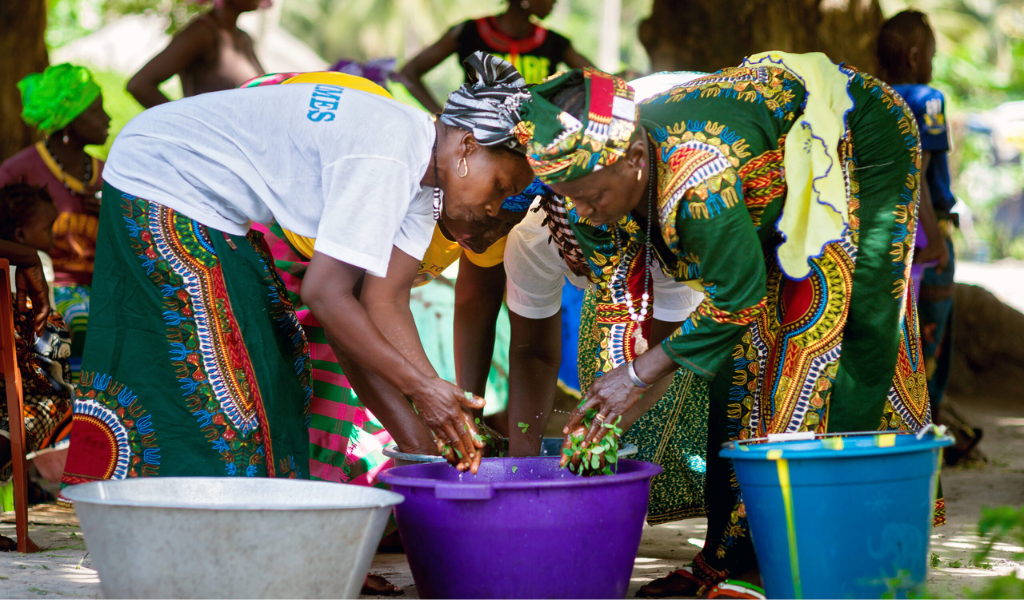As global challenges in clean energy adoption intensify, a compelling conversation unfolded during a virtual panel event, “Powering Change: Women, Youth, and the Clean Energy Revolution,” bringing to the forefront the urgent need to prioritise gender and youth inclusion in the clean energy transition.

This event was hosted as an official side event for the T20. The Think20 (T20) is the official engagement group of the G20, bringing together leading think tanks and research centres worldwide. It serves as the ‘ideas bank’ of the G20 and aims to provide research-based policy recommendations to the G20 leaders. This event brought together researchers from across the globe who are part of the Clean Energy for Development: A Call to Action (CEDCA) initiative, funded by the International Development Research Centre, to discuss the challenges and suggest key policy priority areas for action.
Watch the event
Women and youth continue to face significant barriers in participating in renewable energy value chains, especially in Sub-Saharan Africa and the MENA region, which are highly vulnerable to the impacts of climate change. A lack of access to education, financing, and networks, coupled with entrenched gender roles and cultural norms, hampers their full involvement in the energy transformation. As the global demand for clean energy grows, so too does the potential for women and youth to play a pivotal role in fostering innovation, driving job creation, and ensuring environmental sustainability.
The event highlighted the transformative potential of renewable energy, which not only promises environmental and health benefits but also offers untapped economic opportunities, particularly for women and youth. By addressing systemic barriers like limited access to financing and technology, participants emphasised the need for targeted policies that enable inclusive economic growth. In countries like Senegal, for example, where renewable energy targets are set to reach 40% by 2030, there is a critical need to engage women and youth in the value chain to accelerate this transition. With 43% of rural households lacking access to electricity, supporting clean energy adoption through microfinance, training, and entrepreneurship opportunities is essential.
Research is key to G20 Progress
The G20 process, a vital forum for global economic cooperation, stands to benefit from the insights shared in this panel. The discussion underscored the importance of evidence-based policy recommendations that emphasise the role of women and youth in the clean energy sector. As highlighted, every dollar invested in renewable energy creates three times more jobs than one invested in fossil fuels, making it imperative for G20 countries to prioritise investments in green technologies that support economic empowerment for marginalised groups.
A focus on clean cooking technologies, solar installations, and energy efficiency retrofitting has already proven to create job and entrepreneurship opportunities for women and youth. However, to scale these efforts, there is a need for continued research and innovation, as well as capacity-building initiatives that prepare women and youth for the high-skill roles in the renewable energy sector.
The research findings shared during the event point to clear pathways for policy adaptation: ensuring access to finance, providing STEM education, and removing institutional and cultural barriers are fundamental to increasing participation in the energy transition. As nations like Senegal look to expand access to clean energy, aligning these efforts with G20 priorities for sustainable development and inclusive growth is crucial for a just transition.
Looking Forward: A Collaborative Approach for Long-term Impact
The panel also discussed the importance of collaboration among governments, private sector actors, and academia to scale the solutions identified. It is not just about creating jobs but also ensuring that the workforce is adequately trained, and policies are designed to be gender-sensitive and inclusive.
The outcomes and recommendations from this event will be considered for integration into the T20 high level recommendations to the G20. By embedding these considerations into the G20 process, member countries can take a more proactive role in advancing policies that ensure clean energy becomes a tool for both environmental and socio-economic justice. As we approach key milestones in global climate agreements, it is clear that the integration of women and youth into the clean energy value chain is no longer optional—it is a necessity for a sustainable and equitable future.
